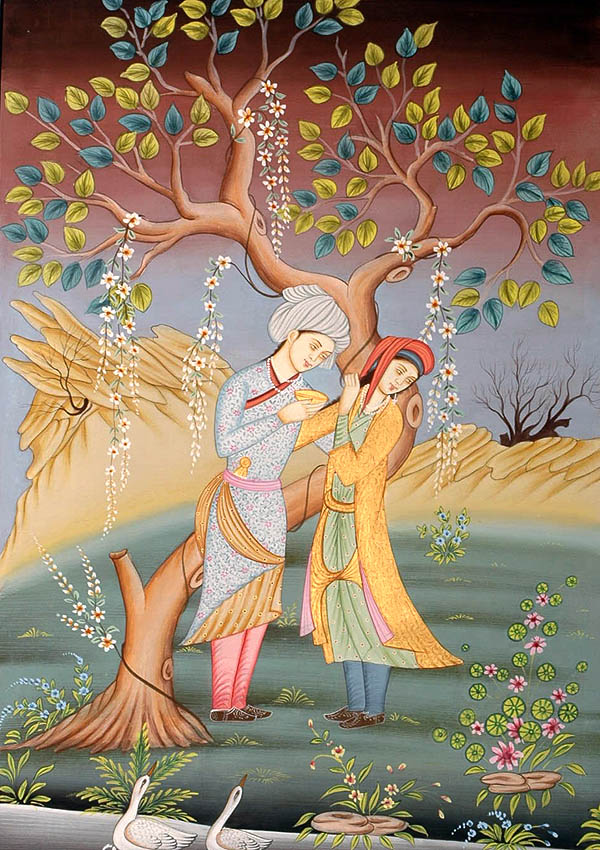Spiritual Sunday
I have become enthralled with the poetry of Frithjof Schuon, which I first encountered in the anthology Music of the Sky: An Anthology of Spiritual Poetry. (Last Sunday I wrote about both a Schuon poem and the anthology itelf.) Schuon, who died in 1998, was a world renowned religious studies scholar and a major figure in the Perennial Movement. Perennialism, according to Wikipedia, is “a perspective within the philosophy of religion which views each of the world’s religious traditions as sharing a single, universal truth on which foundation all religious knowledge and doctrine has grown.”
You can see Schuon moving between different religious traditions in the following poem, which calls for seekers to renounce the world and turn inward. Layla is the dark beloved in Sufi mysticism, sought for by her lover Majnu. Majnu stands in for all those who seek ecstatic union with the divine. If numerous poets of the past–not only Sufi mystics but Song of Songs, St. Teresa of Avila, John Donne, Christina Rossetti, Emily Dickinson and others–have turned to sexual imagery to articulate this union, it is so they can articulate the engulfing power of the moment.
The “cup of wine” is a reference to Christ’s last supper (“the cup of wine, the blood of salvation”). Although some would undoubtedly find pairing it with a naked goddess to be blasphemous, for me the juxtaposition of the two images serves to emphasize the life-affirming properties of the Christian Eucharist. Here’s the poem:
Immanence
They think the world is blooming, while the heart
Renouncing it for God is poor and dark;
In this abyss, they say, thou wilt not find
The golden Paradise thou hast in mind;
They see not that the mystery of night
Means Layla dancing in a globe of light.
Thy deepest heart contains the holy shrine,
The naked goddess and the cup of wine.
While we’re on the subject of Layla and erotic religious poetry, here’s a poem dedicated to her by the Sufi poet Ahmad al-‘Alawi.
Layla
Full near I came unto where dwelleth
Layla, when I heard her call.
That voice, would I might ever hear it!
She favored me, and drew me to her,
Took me in, into her precinct,
With discourse intimate addressed me.
She sat me by her, then came closer,
Raised the cloak that hid her from me,
Made me marvel to distraction,
Bewildered me with all her beauty.
She took me and amazed me,
And hid me in her inmost self,
Until I thought that she was I,
And my life she took as ransom.
She changed me and transfigured me,
And marked me with her special sign,
Pressed me to her, put me from her,
Named me as she is named.
Having slain and crumbled me,
She steeped the fragments in her blood.
Then, after my death, she raised me:
My star shines in her firmament.
Where is my life, and where my body,
Where my willful soul? From her
The truth of these shone out to me
Secrets that had been hidden from me.
Mine eyes have never seen but her:
To naught else can they testify.
All meanings in her are comprised.
Glory be to her Creator!
Thou that beauty wouldst describe,
Here is something of her brightness
Take it from me. It is my art.
Think it not idle vanity.
My Heart lied not when it divulged
The secret of my meeting her.
If nearness unto her effaceth,
I still subsist in her substance.
From A Sufi Saint of the Twentieth Century (Cambridge, UK, 1993), translated by Martin Lings. The Schuon poem is to be found in Road to the Heart (Bloomington, 1995).
